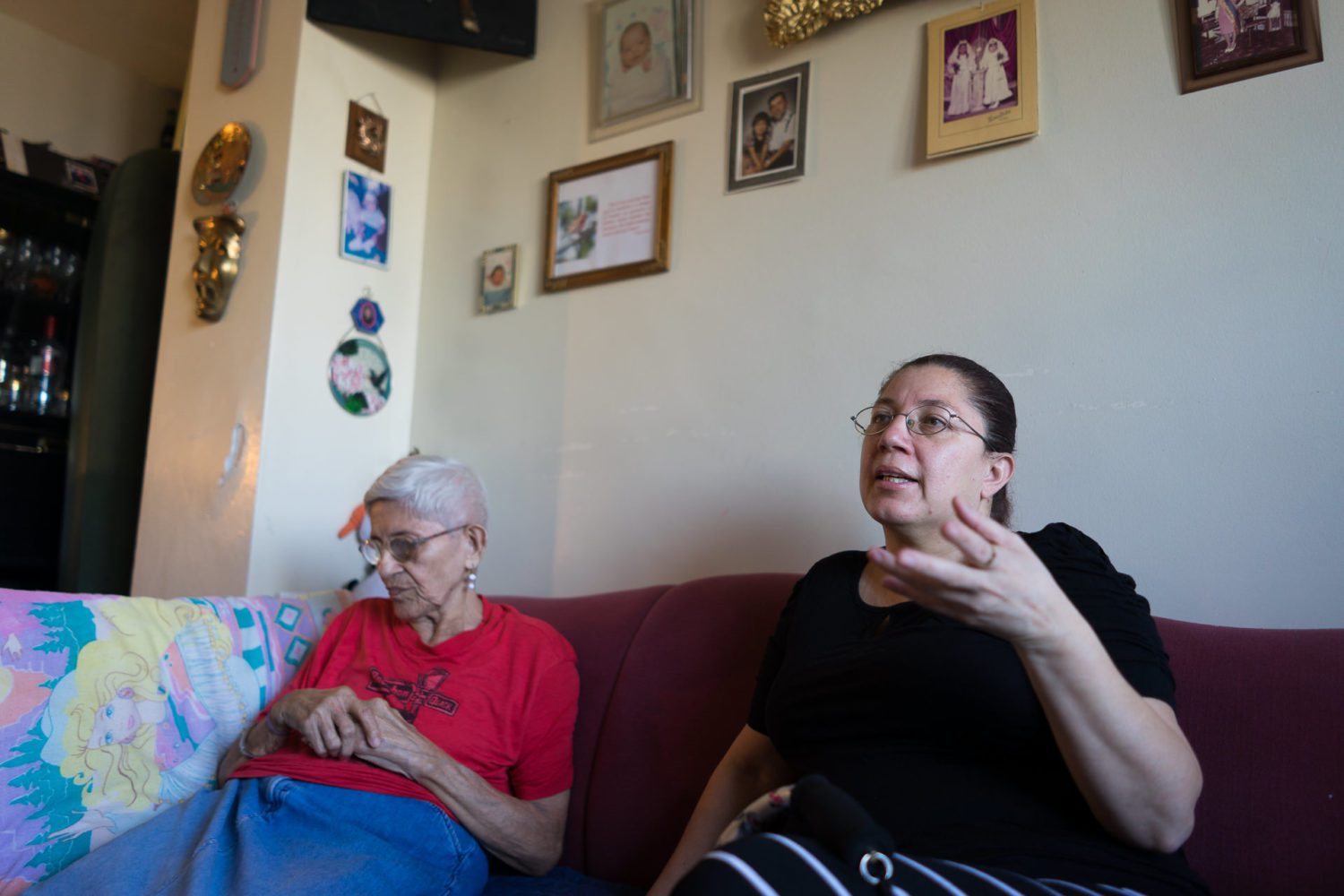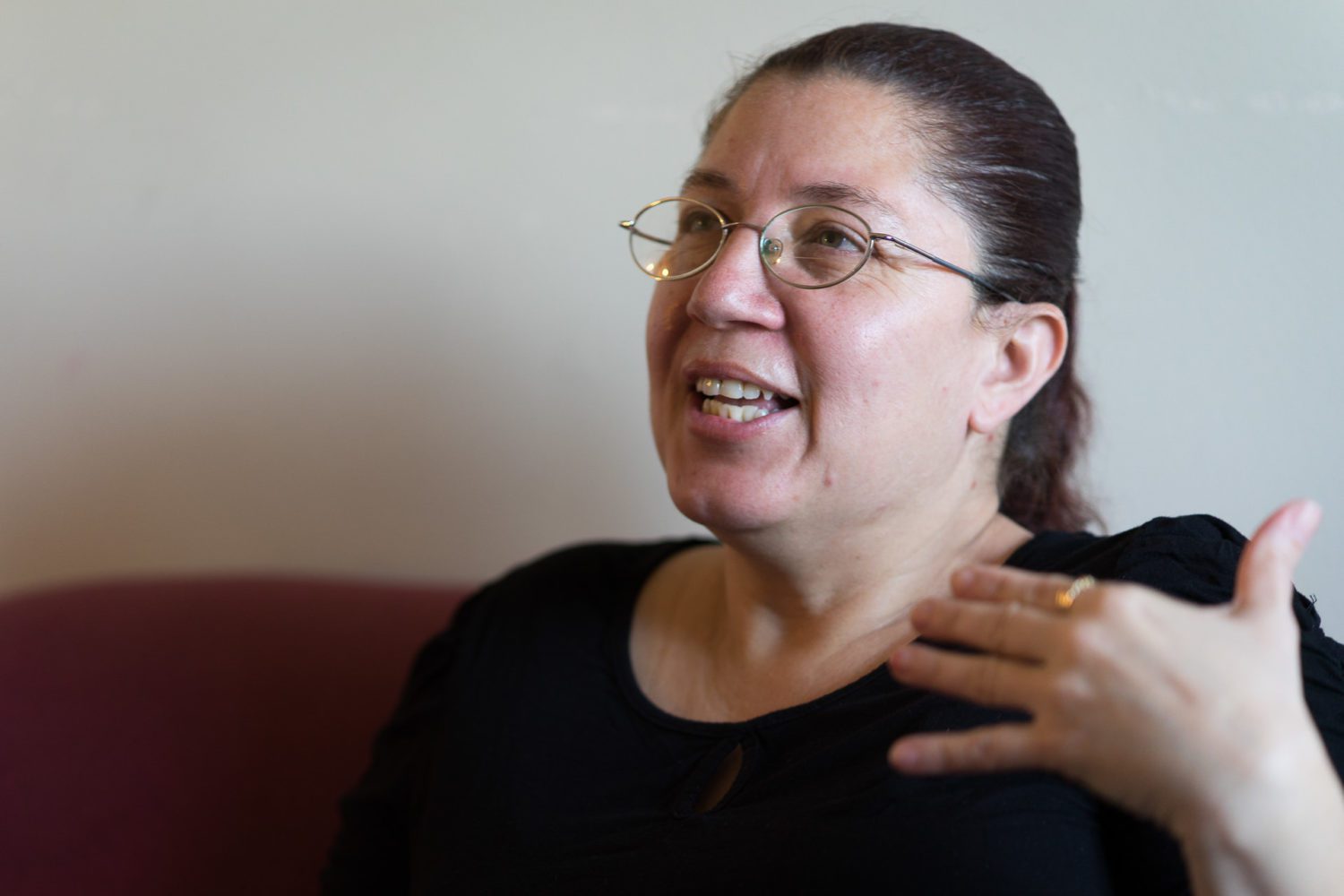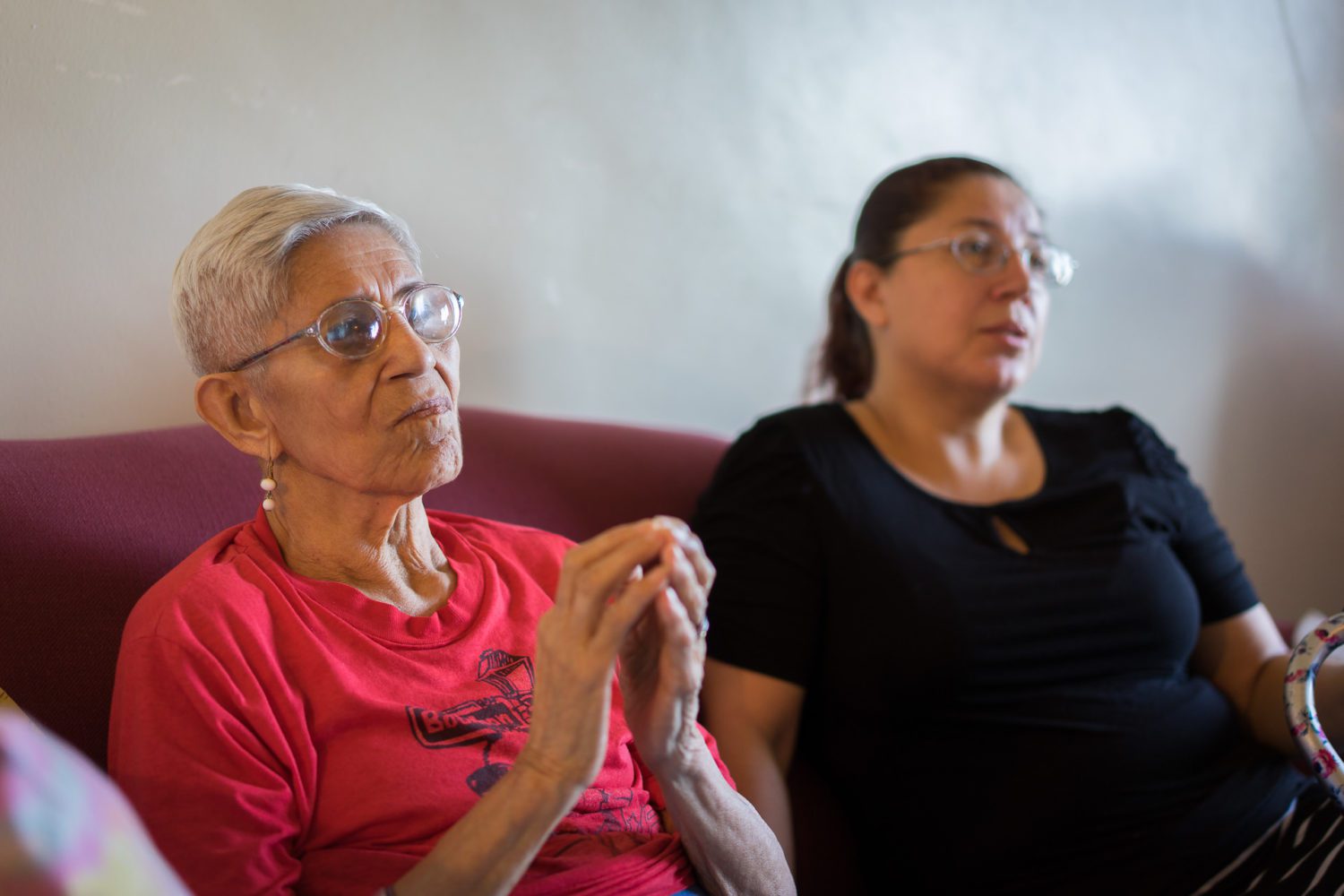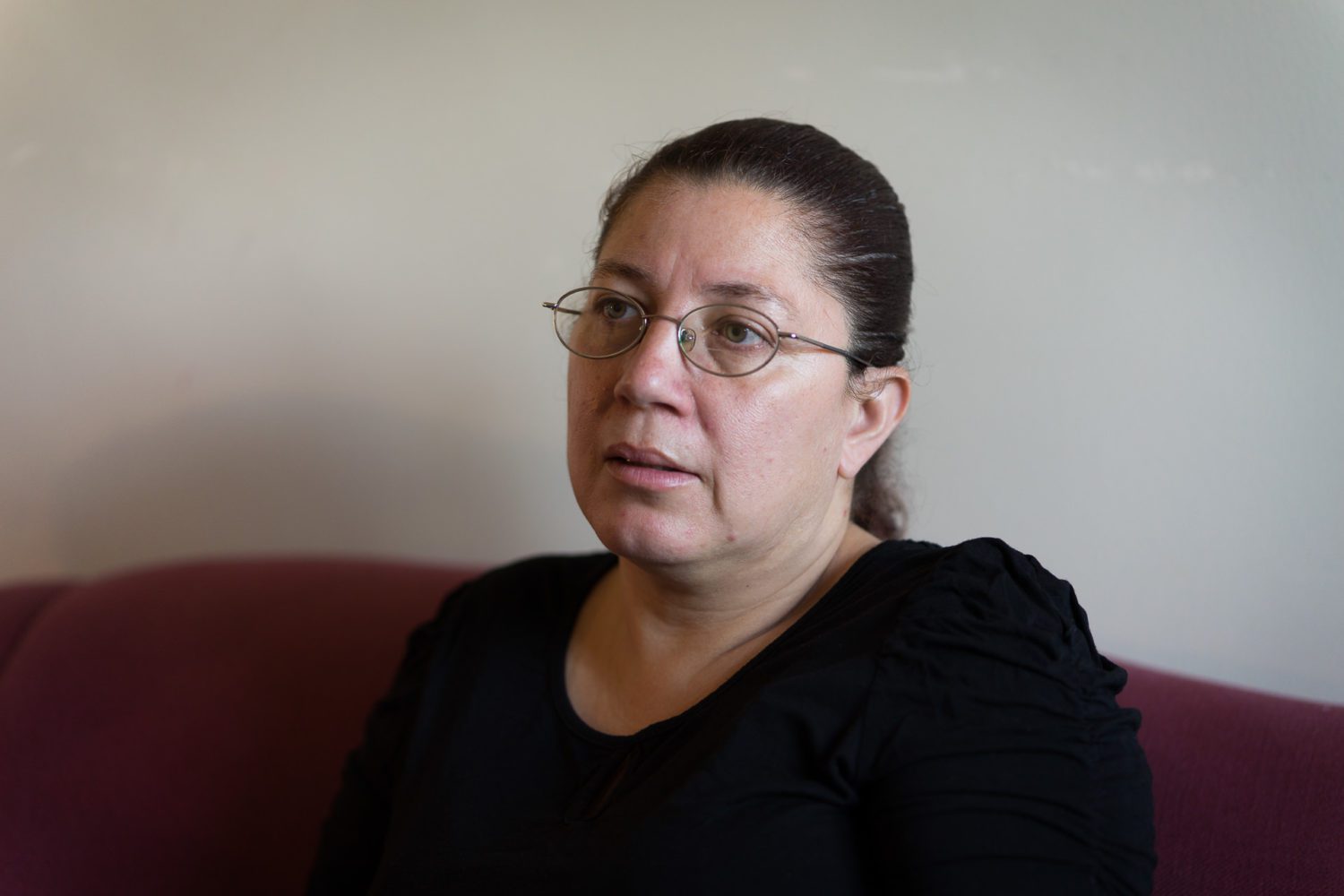Ines is taking care of her elderly mother, Gloria, who has chronic pain due to a work injury and arthritis. That’s hard enough, she says, but too often, health and community services put up unnecessary barriers. From poor translation services to inflexible community housing bureaucracy, Ines talks about the daily struggles faced by informal caregivers like her.
“My dad came from Ecuador to Canada. Then my mom and my brother followed in 1974. Me and my sister came two years after that. My parents wanted to come here for a new opportunity of life. My mom had a few jobs but the last one was with a company where they made logos for cars. She had an accident at work and damaged three disks in her spine. She hasn’t worked since.”
My mom has a lot of chronic pain. She cries every day. She can’t do anything. Her fingers are getting numb. It’s getting worse.
“They say it is from the spine injury plus arthritis plus her age. She says the medications help a bit, but I think because her body is so used to the medications it is like her body doesn’t respond to them much anymore.”
“She has to pay for some of her medicines, like rubbing creams for her arthritis and joint pains, because they’re not paid for by the government. When we pay for her food and rent, there is not really much money left. I don’t think it’s fair for a senior to be paying for medications when they don’t have enough money. We had to pay for physiotherapy too.”

“I know mom’s depressed, stressed. My brother passed away two years ago. He used to be here with her and helped her with everything. After he passed away, she went more downhill. Because he was the one that would do groceries and stuff, and take her to the doctors.”
“My mom is a strong person. She of holds it in.”
But when she goes to bed at night and tries to sleep, she doesn’t sleep through the whole night because of the pain.
“My mom is one of the best moms in the world. She doesn’t complain or moan. For me, as a daughter, it’s the hardest thing to watch your own mother in chronic pain and you can’t do anything. It hurts because you can’t help. {Cries} You don’t know what to do when you see your own parent crying. Even when I talk to her on the phone, she’s crying. There’s not one day that she does not go through that. It’s every day and it’s 24/7. I even hear my mom saying, ‘I just wish God could take me right now.’ That’s how bad it is. She’s strong, but she is suffering.”

“I would like to move mom to my place, but because I have no elevator in my building, I can’t. I have talked with Toronto Housing about getting a four bedroom apartment so I can have my mom with me. And they go, ‘Well, you have to go on the waiting list. It’s going to be maybe ten years or so.’ And I go, ‘I don’t understand! Just give me an extra bedroom!’ My mom already has Toronto Housing, so if she could live with me, that would free up her one-bedroom apartment!”
“It would be so much easier for me to take care of her if my mother could live with me and my kids.”
But the way government works, instead of making it easy for you, they make it harder.
“And I am not going to put my mom in a senior’s home. That won’t go. We were not brought up that way. She took care of us when we were little; now it’s our turn to take care of her.”

“If you are a doctor you are supposed to try and help the person ease the pain. Many doctors nowadays they don’t care. It’s all about the money that they are getting.”
“But there are good doctors. Two years ago my mother had a bowel cancer removed. The surgeon that she had – he was a wonderful doctor. I take off my hat to him. The patience, the care that he had with my mom was wonderful. He understood a bit of the Spanish my mom was speaking. He said he went to Ecuador for a couple of months.”

“I have tried to get a nurse to come to the apartment but there is such a long process. And then when you do find somebody, they don’t speak Spanish. We need somebody my mom can speak to. If she can’t speak to the nurse, there’s no way. They should have more homecare nurses from different cultures. My sister and me, we try to be here when the nurses come. But we can’t always do that.”
Translation isn’t always the answer either. I find that sometimes when they provide translation, they don’t do it the proper way.
“One time, I said, ‘No, no, no! That’s not what she said!’ To do a translation, even if the person is upset you have to say exactly what the person said – you have to translate the emotion and the feeling of that person. Do not lie and say she said this, when it’s not what she said.”
“I have been doing translation for my parents since I came to Canada. I don’t have a certificate in translation but I am still good at it.”


The comments section is closed.